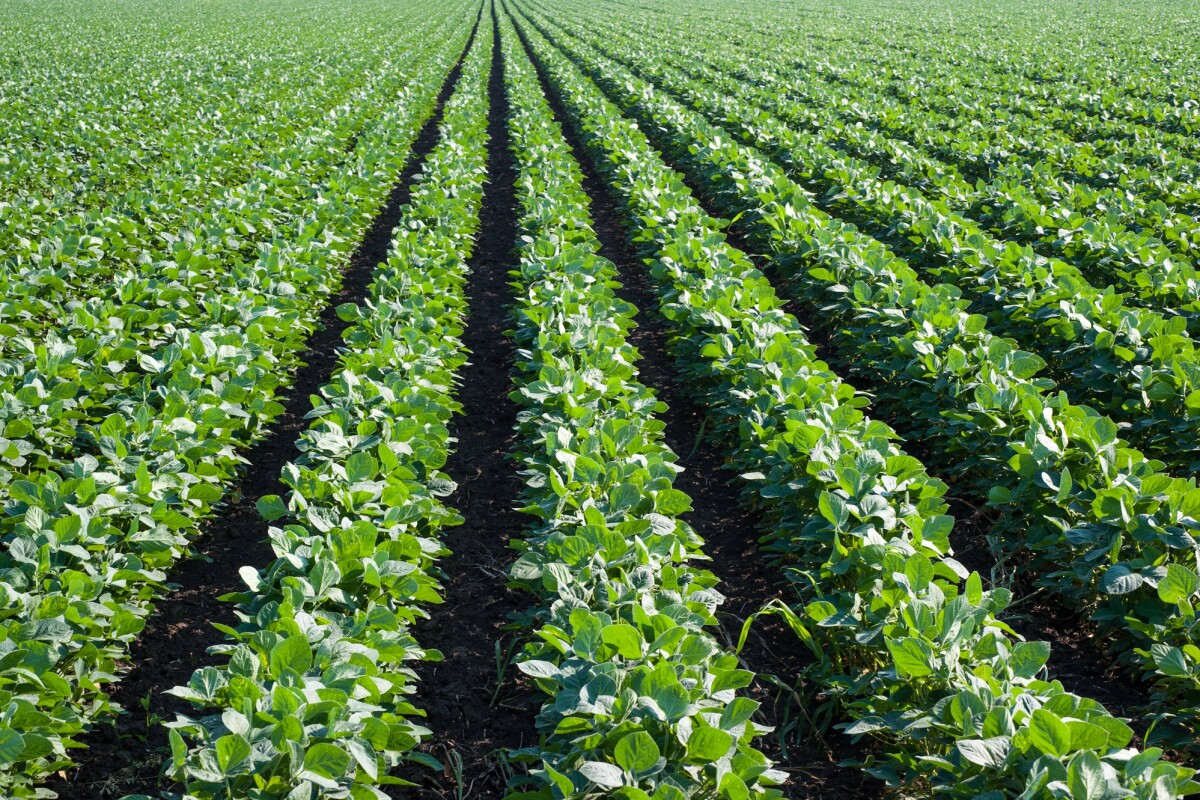
Fifty tons per hectare is a lot of dust. At the same time as mechanically injecting fertilizer and biochar in seed hills may really make a difference.
Yet all that basalt still has to be pulverized to dust. Sort of think we need an industrial mandate here.
Yet we do have the machinary fror it. Basalt powder and biochar should also be organic as well. Been able to repeat hills every year would also be helpful.
It should also augment chemical fertilizers as well to produce better product.
This is a bit unexpected, but i wait to see costing,
CO2-capturing rock dust boosts crop yields by up to 16%
By Ben Coxworth
April 01, 2024
The application of dust produced via "enhanced rock weathering" has been found to significantly increase soybean and maize yields
The application of crushed rock to farmers' fields may not only reduce greenhouse gases, it could also boost crop yields by up to 16%. These are the findings of a new study conducted by scientists from the University of Sheffield’s Leverhulme Centre for Climate Change Mitigation.
The research actually builds on a previous U Sheffield study that we heard about back in 2020. At that time, scientists were analyzing the effectiveness of a technique known as enhanced rock weathering.
In their natural state, rocks naturally absorb atmospheric carbon dioxide as they break down in the environment. The greater the number of pieces they break down into, the greater the total surface area available for carbon sequestration, and thus the greater the amount of CO2 that can be absorbed.
Most rocks take a long time to fall into small pieces on their own, however. Additionally, in order for all those pieces to absorb CO2, they have to be laid out across a large area where they're all exposed to the atmosphere. That's where enhanced rock weathering comes in.
The process involves mechanically pulverizing rocks down to the consistency of dust, then spreading that material across agricultural fields. Farmers wouldn't necessarily have to spend any extra time doing so, as the dust could be spread alongside fertilizers or other additives that were already being applied to the fields anyway.
In the 2020 study it was determined that if practiced on a global basis, enhanced rock weathering could draw up to 2 billion tonnes (about 2.2 billion tons) of carbon dioxide from the atmosphere every year. For a bit of context, that's significantly more than the amount of CO2 emitted annually through global aviation and shipping combined.
The rocks could be obtained from sources such as mining operations, and farmers could be financially incentivized to use the dust on their fields. And if the money isn't enough on its own, then the promise of higher yields may help.
Dr. Dimitar Epihov inspects soybeans in one of the test plots
Ilsa Kantola, UIUC
The new study was conducted over a four-year period at the University of Illinois Energy Farm, on fields in which maize and soybeans were grown on a rotating basis. Some plots in those fields were left untreated to serve as controls, while others had the basalt dust applied at a rate of 50 tons (45 tonnes) per hectare every year.
It was ultimately found that yields of the treated plots were 12-to-16% higher than those of the controls.
This outcome was due mainly to the fact that the basalt raised the soil's pH, which in turn boosted the plants' ability to take up nutrients already present in the soil. Additionally, as the basalt disintegrated in the soil, it released nutrients of its own such as phosphorus, potassium and calcium.
As an added benefit, plants from the basalt-treated plots were higher in micro- and macronutrients, increasing their nutritional value for both humans and livestock. The carbon sequestration effect was also confirmed – it's now believed that application of crushed rock dust can remove about three to four tonnes of atmospheric carbon dioxide per hectare per year.
"We have shown with hard-won data, the carbon removal potential of enhanced weathering practices in the real world," said the lead scientist, U Sheffield's Prof. David Beerling. "It’s a big step forward in understanding the enormous potential of this technology to mitigate climate change while simultaneously improving yields and soil health."
No comments:
Post a Comment